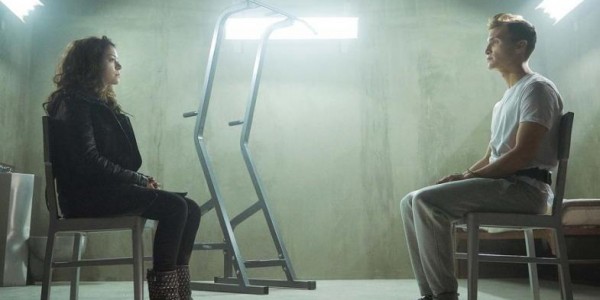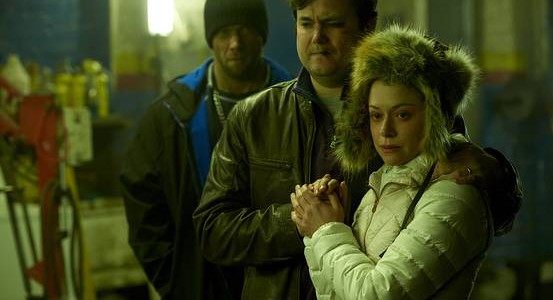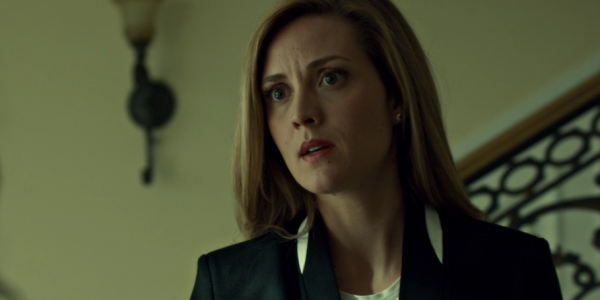Orphan Black Season Three Review
"A Solid Bounce Back from a Disappointing Second Season"
Orphan Black is an interesting series. After it struck critical and commercial success with its first season, the series lost a great deal of its critical shine in its second season. Personally, I was so disappointing with the show's creative fall between seasons one and two that I debated giving the show up for lost. But, after Saturday's third season finale, I'm glad I opted to stick with it and I suspect most people who were disappointed with the show's second season storylines are pleased as well. While
Orphan Black's third season never reached the heights of season one, it went a long way to putting the show back on a manageable course, pushing through some complex mythology, and reminding us that there are indeed stakes to what is happening to these characters.
Before I get much further into the season review, just a word of warning: This review presumes you have watched the entire third season of
Orphan Black. There will be spoilers- major spoilers- for plot points that occurred within it. If you haven't finished, keep watching then come back and read through the review.

One of the major issues with the show's second season (which bled into the early portions of the third as well) was that it introduced too much too quickly. It felt like the series had taken a turn into a mythology dump that pushed the boundaries of credibility, even on a genre show where such twists and turns are expected. So many new characters and the separation of the clone sisters caused the show to lose sight of its most important element: the strength of these women when they are together. The revelation of the Castor clones didn't payoff as well as I think the series was hoping (a good amount of that was due to the lack of nuanced differences between the Castor clones compared to the Leda line- partly a limitation of the writing, and partly due to the limitations of Ari Millen who had the unenviable task of trying to be as amazing as Tatiana Maslany). After spending so much time setting the storyline up in season two, having the Castor danger more or less handled by the end of season three was the best possible solution the show could have hoped for. While the idea of two separate clone lines works well on paper, it didn't really work on screen. Too much time was spent on this new plot point, while time was taken away from the clones we wanted to spend time with- particularly Cosima, who really got the short shrift this season.
While the threat of the Castor clones, and the military influence and backing, wasn't the best use of the show's time and energy, it did manage to do one thing- make Paul a necessary character once more. Without his role as Beth's monitor, Paul was lost at sea as a character. He was too gray to ever be someone Sarah and the audience fully trusted, and Dylan Bruce just didn't give a strong enough performance in the role to really make the character necessary in the grand scheme of things. But using Paul as a way into the inner circle of Castor was excellent. It allowed those of us who didn't trust Paul to continue with our suspicions, and it allowed those who thought he was still on the side of good to maintain their hopes as well. But, most importantly, the show used Paul's death to remind us there are actual stakes in this struggle.

Too often in the past,
Orphan Black has dangled the threat of death over our heads and then refused to follow through. Helena survived against all odds after season one and Cosima seems to have recovered much quicker than was thought possible (and with the original cell line, she is now out of the woods for good). By threatening us with the deaths of characters we loved and not delivering, it removed the threat of final death as a possibility for such characters. Which is why Paul's death was necessary. It's all well and good if Sarah and her sisters are under threat from a dangerous force if we think the show won't kill off a character we care about. But if the series pulls the trigger on not one, but two, beloved characters who have been with the show since day one, well, that drives home that the danger is real and there are consequences. Paul's sacrifice redeemed the character and drove that point home. Delphine's death in the finale? Well, that absolutely shattered the status quo and really changed the series in a monumental manner.
Like Paul, Delphine was, for the most part, isolated within the boundaries of a single clone storyline for the majority of her first two seasons on the show. Yes, she was a much more likeable and engaging character than Paul (almost certainly because she was teamed up with Cosima, a fan favorite from the word go), but Delphine wasn't the most complex character on the series. That all changed with her promotion at the outset of season three. Gone was the loving and warm girlfriend. Instead, we were given a Delphine who was cold, calculating, and icily focused. But she still held a bright candle for Cosima, even if she had to let her go for both their sakes. Kudos to Evelyne Brochu for her superb work throughout the season. Seeing these new layers to Delphine, all of which were trumped but her continual love for Cosima, made her final scene of the season all the most heart wrenching to watch. Even though I'm crushed that Delphine presumably is gone from the series (we never did see her actually die, after all), I'm glad the show made that choice. I'm glad there are serious stakes in the fight. A good writer isn't afraid to kill his or her characters, no matter how much an audience loves them, if the story needs it. The deaths of Paul and Delphine go a long way to making the audience buy into the threat the neolutionists (who, up until this point, have been a lot of bark and no bite).

Outside of the mythology building, the series also found it's heart once again in season three. From day one, amidst all the DNA sequencing and shadowy organizations,
Orphan Black was the story of a lost woman finding her family. Sure, that family came in the form of several clone sisters, but the thrust of the series was the search for identity and a search for family. Sarah was a broken and damaged person, alienated from her adoptive family and without her daughter. Now, she's a much more balanced person, flush with people who care about her and people she would gladly lay down her life to help. When the series pulls on that theme, it soars. And for much of the third season, family was at the forefront. Sarah's desire to protect Helena from danger informed the first half of the season, with the second half an all-out blitz of clones protecting each other, and Sarah accepting Mrs. S back into her life. The last two years, as rocky as they may have been, did indeed lead Sarah (our protagonist, through and through) on a journey to understand that it is ok to be vulnerable and rely on other people. I would gladly go through last season's mess of a story to see Sarah come out on the other side like this.
Season three was a strong year for
Orphan Black. I don't know if the series will ever again reach the heights of season one, but having pared down the show's bad guys to one major faction, I think the series could once again be one of the strongest and most original shows on the air as soon as next season. There's a focus to the storytelling again, and a force that has united our characters in a way that hasn't happened since the beginning. Couple all of that with Tatiana Maslany- the most talented actress currently on television- and things are looking pretty bright for the future of
Orphan Black.
Pros
- More focused storytelling
- Sense of danger to the arcs
- Streamlined the mythology
Cons
- Too much time with the military side of things
- Allison storyline was too far removed from the action